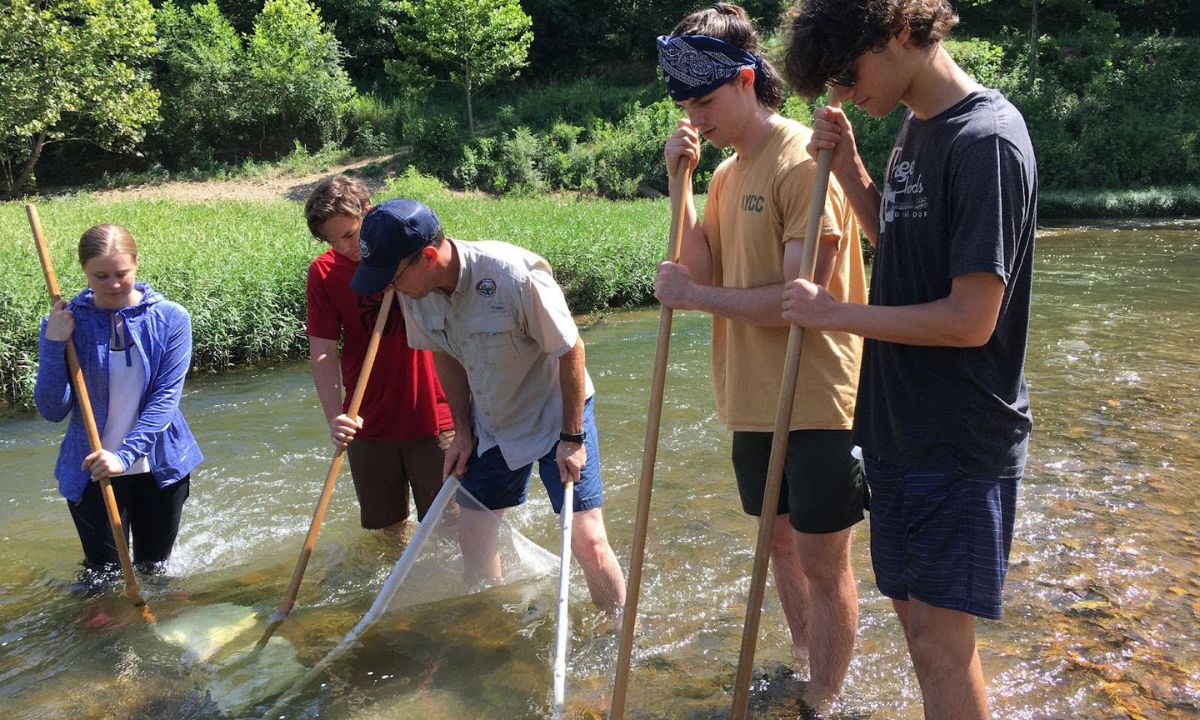Arkansas Game and Fish Commission Promotes Conservation Education in Schools
Arkansas Game and Fish Commission boosts conservation education with over $680,000 in grants and new student volunteer program.

Get stories like this delivered straight to your inbox. Sign up for The 74 Newsletter
With more than $680,000 in grant funding available this year for Arkansas schools and the launch of a volunteer program to help students complete new graduation requirements, the Arkansas Game and Fish Commission has brightened its spotlight on conservation education.
Both efforts help to build long-term support for conservation, which is one of the parameters the commission uses to measure its success, spokesperson Randy Zellers said.
“Right now there are boys and girls who want to know more about the outdoors, but their schools may not have the resources available to truly devote toward anything outside of core curriculum,” Zellers said. “These grants and volunteer opportunities give them the means to expand their educational offerings and capture the interest of some of those students.”
The $682,472 in available funding comes from boating and wildlife fines collected in fiscal year 2024 and any unspent money from schools in previous years. The funds stay within the county where the fines were collected and the amounts vary.
The variance tends to correlate to the public recreation opportunities offered in each county, Zellers said.
Arkansas County, which includes Stuttgart, a renowned duck hunting destination, accrued the most fines at $36,170, according to the Game and Fish Commission. The next highest amount, $26,563, was collected in White County where bass, crappie, bream and catfish are popular catches in Bald Knob Lake.
“However, increased opportunity doesn’t always lead to an increase in wildlife violations or fine money collected,” Zellers said. “One egregious incident with a poacher being caught with multiple violations at once may result in thousands of dollars in fines on its own.”
In the coming weeks, applications for grants will be available through the Rural Service Division, which is part of the Arkansas Department of Economic Development. Grants can be used to fund programs such as Youth Shooting Sports and Archery in the Schools.
The money can also be spent on projects like butterfly habitats and field trips to nature centers, hatcheries or wildlife management areas.
“The experience may vary from student to student, but teamwork, leadership and long-term commitment are all traits developed through conservation education opportunities,” Zellers said.
Approximately $537,000 was awarded to schools last year. Approved items included bee houses and hummingbird feeders for a pollinator garden at Dewitt Elementary school, construction materials for an outdoor classroom at a Bradley County school and animal skins, track and skull replicas in Franklin County.
Current applications are open through Oct. 3.
Volunteer program
The Arkansas Game and Fish Commission also recently announced a new volunteer program aimed at helping high schools students complete 75 hours of community service hours, which is now a graduation requirement under the LEARNS Act.
Along with many other changes the sweeping education law brought upon Arkansas schools last year, the LEARNS Act implemented a community service requirement for all students, unless they secure a waiver. Reasons for obtaining a waiver could include major illness, homelessness or if the student is a primary contributor to their household income.
In March, Arkansas Department of Education Deputy Commissioner Stacy Smith said the new graduation requirement would help students build pride in and connection to their communities.
Each district is allowed to define what community service can include, though the policy must be posted to the district website, require an adult to sign off on the student’s community service hours and include preparation, action and reflection components required for a student to receive credit.
The Arkansas Game and Fish program opens the door to students who are “interested in giving back to conservation as well as their community,” according to a press release. School district officials will need to submit a request to register for opportunities before students can participate.
“We’re trying to offer a variety of experiences so students can find something they can enjoy doing and feel like they contributed once the work is done,” said Leah Hughes, the commission’s volunteer program coordinator. “Having worked at many of our events myself, I can tell you that it can be so fun and fulfilling that you might have a hard time stopping at those minimum hours required.”
Volunteer opportunities will give students a peek into the everyday tasks of those who work for the commission with activities such as trail cleanups, fishing derbies and archery tournaments.
“Conservation education is paramount to the [commission’s] mission of conserving and enhancing wildlife and their habitats while promoting sustainable use, public understanding and support,” Zellers said. “It’s not just about hunting and fishing, but about all aspects of conservation, responsible water usage, understanding our role in the world around us and how what we do affects everything downstream from us.”
Arkansas Advocate is part of States Newsroom, a nonprofit news network supported by grants and a coalition of donors as a 501c(3) public charity. Arkansas Advocate maintains editorial independence. Contact Editor Sonny Albarado for questions: info@arkansasadvocate.com. Follow Arkansas Advocate on Facebook and X.
Get stories like these delivered straight to your inbox. Sign up for The 74 Newsletter

;)